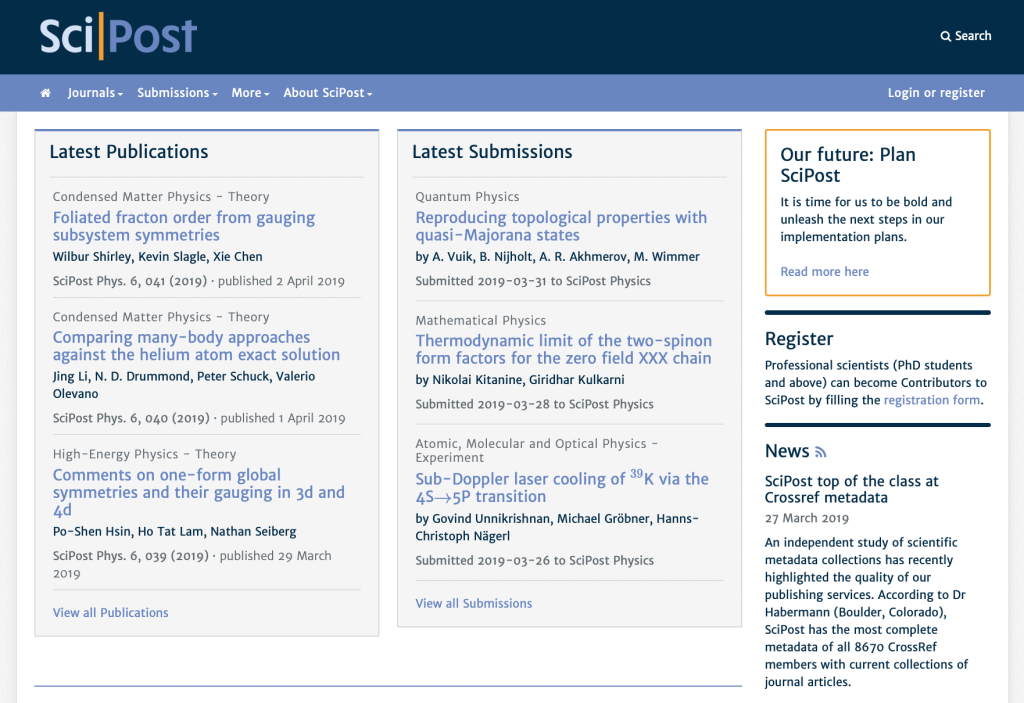- Profile
- Comments 0
- prev
- next
- Website
- Leave a comment
- Review policy
- prev
- next
In a nutshell
SciPost (https://scipost.org) is a top-quality next-generation Genuine Open Access publication portal managed by professional scientists. Its principles, ideals and implementation can be found at https://scipost.org/about and https://scipost.org/FAQ.
SciPost operates on an entirely not-for-profit basis, and charges neither subscription fees nor article processing charges; instead, its activities are financed through a cost-slashing consortial model. Details of the sponsorship scheme and how to join can be found at https://scipost.org/sponsors or by emailing admin@scipost.org.
Goals and intentions
SciPost was born out of the recognition that the currently available publishing infrastructure does not properly serve the interests of science, and that these are best served by scientists themselves.
The initiative aims to reform all aspects related to scientific publishing. In particular, SciPost's mission is to:
- Implement Genuine Open Access
- Clean up the business model of scientific publishing
- Reform refereeing methods and habits
- Reform impact assessment methods and habits.
Project status
Types of outputs
Review process
-
Review requested byAuthors
-
Reviewer selected byEditor, service, or community, Self-nominated
-
Public interactionYes
-
Author responseYes
-
DecisionBinary decision
Review policy
-
Review coverageComplete paper
-
Reviewer identity known toEditor or service
-
Competing interestsChecked
Social Networks
Video
Review features
-
Manuscript hostingYes
-
Notes
Our peer-witnessed refereeing procedure is described in detail on our author guidelines page.
https://scipost.org/submissions/author_guidelines
-
Review of code or dataYes
-
Eligible reviewers/editorsEditors are Fellows of our Editorial Colleges. Reviewers are invited among the community. Professional scientists are further able to volunteer reports and comments.
-
Tags or badgesYes
-
Explanation of costWe operate using a consortial sponsorship model.
Transparency
Results
-
Number of scholarly outputs commented on100-1,000


Add a comment